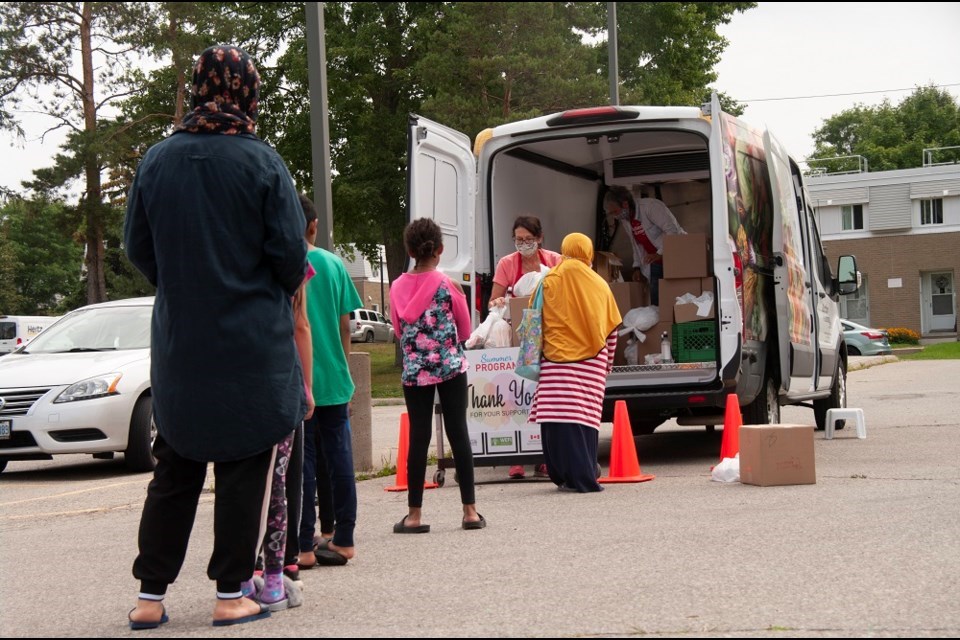Local organizations that help feed students who arrive at school hungry admit they are nowhere close to meeting demand.
According to Nutrition for Learning CEO, Erin Moraghan, they would need six times their current budget to feed the nearly 100,000 students in the region.
"There is a big misconception that Nutrition for Learning or other food programs are fully funded by the government," said Moraghan. "This couldn't be further from the truth, we mostly rely on generous members of the community and corporations."
She said provincial funding only accounts for 28 per cent of the total funding for the program and there are severe shortfalls amid unprecedented demand.
In 2023, the spending budget for Nutrition for Learning was around $800,000 and nearly doubled to $1.5 million for 2024. Even with with the increase, the group is still millions of dollars away from being able to make sure that no kid goes to school hungry.
Ottawa plans to spend $1 billion over the next five years to create a new national food program and Prime Minister Justin Trudeau said it will feed an extra 400,000 students a year.
While the federal budget still hasn't been approved, organizations like Nutrition for Learning are left with many questions.
"We've never had a national food program before, so this is great, but we still don't know how much we are going to get or how this will help us meet demand from the community," said Moraghan.
"I am curious about this number of 400,000 students that they've stated they'd like to assist. In Waterloo region alone, our program is accessible by 100,000 students, so I have a lot of questions around what they're describing."
Education does not fall under the federal umbrella of services, but this new program will allow Ottawa to team up with provinces and territories to build on partnerships with local groups.
Food4Kids is another local group that helps provide assistance to children battling food insecurity, but they are disappointed they have been excluded from accessing any funding.
"This new announcement only covers in-school programs and since we fall outside of that, we are unable to receive any of the funding," said Stephen Swatridge, executive director for Food4Kids Waterloo Region.
Swatridge tells a similar story about being unable to meet demand and said the service can only assist around 1,200 children each month when there are thousands more who could use their service.
"To be honest, I am disappointed that we were left out, because we are trying to help the same children that are in the schools, but they are not at school all the time," he said.
Moraghan and Swatridge work closely on supporting the community and think there would be a unified program that wouldn't stop after the school bell rings.
"This is the time where we all need to work together and pool all of our resources in one place to help these kids," said Moraghan.
"Every time I think we are getting close to meeting the demand, I go into an underserved school and it's clear some of these children haven't had breakfast for days."
According to the latest Hunger Reports by Feed Ontario and the Food Bank of Waterloo Region, 2023 saw the largest growth of food insecurity in the history of each organization.
Feed Ontario notes that new users and visits nearly doubled that of the recession in 2008.
"It's clear that the time to act is now and we are hoping we can find a path forward to making sure that no kids goes to school hungry in our region," said Moraghan.

